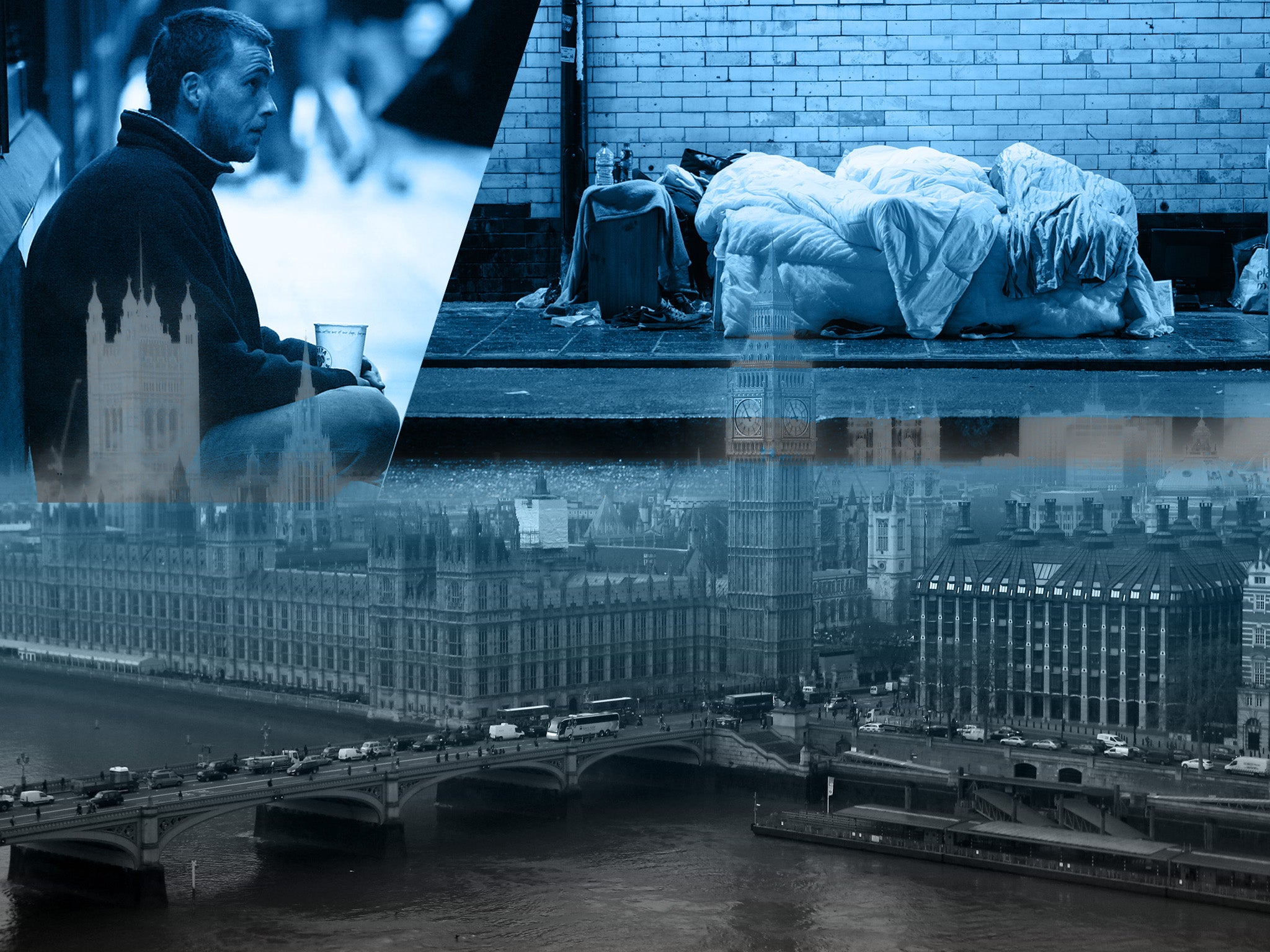UK government ignoring housing crisis faced by Roma communities, experts warn
Exclusive: New report finds Roma people continue to face heightened risk of overcrowding and poor housing

Your support helps us to tell the story
From reproductive rights to climate change to Big Tech, The Independent is on the ground when the story is developing. Whether it's investigating the financials of Elon Musk's pro-Trump PAC or producing our latest documentary, 'The A Word', which shines a light on the American women fighting for reproductive rights, we know how important it is to parse out the facts from the messaging.
At such a critical moment in US history, we need reporters on the ground. Your donation allows us to keep sending journalists to speak to both sides of the story.
The Independent is trusted by Americans across the entire political spectrum. And unlike many other quality news outlets, we choose not to lock Americans out of our reporting and analysis with paywalls. We believe quality journalism should be available to everyone, paid for by those who can afford it.
Your support makes all the difference.The government must urgently address rising homelessness within Britain’s Roma communities, experts have warned.
It follows a new report which found that these groups face a heightened risk of living in overcrowded and severely substandard housing, which often impacts mental and physical health.
Exploring the phenomenon of Roma homelessness in the UK, published by the Institute for Social Policy, Housing, Equalities Research (I-SPHERE) at Heriot-Watt University, interviewed people in the community in the past year in Luton and Glasgow, areas that have high populations of Roma people.
A number of recommendations for solutions are proposed including the need for better conversations and understanding between the Roma community and public services that could assist them to navigate their housing and other challenges.
Matt Downie, chief executive of the homeless charity Crisis, said: “This report makes for harrowing reading, but unfortunately its findings are not surprising. Every day we see in our services that minoritised ethnic communities are experiencing higher rates of homelessness.
“It’s horrifying that so many Roma people are having to endure appalling and overcrowded living conditions when trying to access a safe and secure home. National and local government must sit up and take notice of this report.
“We need long-term, culturally sensitive solutions to end homelessness for good and the recommendations set out today should be implemented now to ensure everyone has access to suitable, safe and appropriate accommodation, regardless of their background, nationality or personal circumstances.”
There are at least 200,000 migrant Roma people living in the UK and the lack of support that many experience is well-documented. From grappling with harsh immigration policies and difficulty securing work to overt discrimination and poorer health outcomes.
Healthcare inequalities are frequently experienced by Gypsy, Roma and Traveller (GRT) communities. Previously, The Independent revealed that UK GP practices were potentially breaching equalities law by refusing to register patients from these groups during the Covid-19 pandemic.
Many living in overcrowding conditions led to significant levels of stress and anxiety, it was found. This was seen as particularly problematic for younger household members who rarely had their own room or private space.
This was considered to impair the educational and personal development of children and teenagers; GRT pupils have the lowest attainment in compulsory schooling of all ethnic groups.
In order to avoid living in severely overcrowded accommodation, people spoken to by the researchers said they had moved out of accommodation shared with family and rented their own house, the report found, however, these properties were often of an extremely poor standard.
There were also cases of households facing health and physical injury due to high levels of overcrowding and poor housing conditions, the report highlighted. Some of these properties lacked basic utilities, such as electricity and water, while mould, rats or bed bugs were found.
As well as being dangerous to physical health, such conditions seriously impact mental health, compromising the well-being of the family, social networks and inducing feelings of shame and frustration, it was concluded.
Crina Morteanu, Luton Roma Trust, said: "This report sends a strong message that Roma homelessness exists and interventions at different levels are required in order to eradicate it. It captures a very accurate image of the situation of many Roma in the UK and especially in Luton.
“As a Roma charity in Luton, working for the betterment of the Roma community, this report is very helpful and will help tremendously with raising awareness about homelessness and with advocating on behalf of the Roma."
The report’s findings challenge the stereotypical image of Roma people living as large extended households by choice, finding instead they are constrained by circumstances.
Lead author Dr Ionut Cioarta, from Heriot-Watt University, who is Roma, said the issue of homelessness among Roma people is “highly complex yet woefully under-researched”. This leaves policymakers and service providers with extremely limited information to inform their current and future interventions.
A government spokesperson said: “No-one in our society should have to suffer the injustice of living in overcrowded or substandard housing, and councils have a responsibility to ensure families or vulnerable people are not left without a roof over their head.
“We are investing over £1billion into the Homelessness Prevention Grant over three years to help tackle homelessness before it occurs. Councils can use the funding, to help people find a new home, get help with evictions, or move into temporary accommodation.
“We expect councils to commission services based on the needs of their communities. This ensures the needs of all people, regardless of background, ethnicity or religion, are met.”




Join our commenting forum
Join thought-provoking conversations, follow other Independent readers and see their replies
Comments